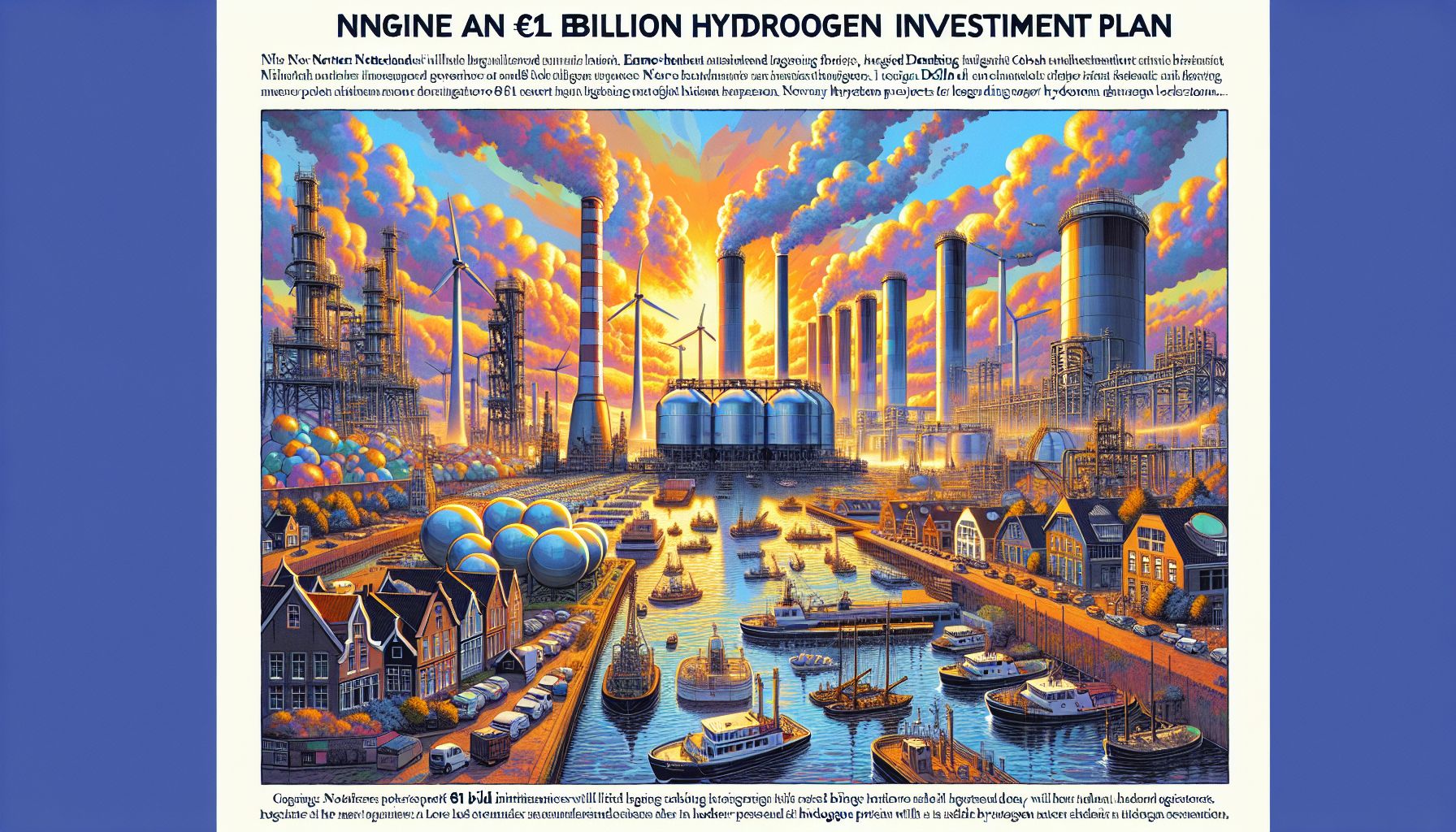Northern Netherlands Unveils €8 Billion Hydrogen Investment Plan

Groningen, Friday, 18 October 2024.
HyNorth’s 2024 Investment Plan targets Eemshaven and Delfzijl for major hydrogen projects, aiming to contribute significantly to national and European energy goals. With 81 projects planned, including five major initiatives accounting for 85% of production capacity, the region is poised to become a leading hydrogen ecosystem.
Strategic Focus on Eemshaven and Delfzijl
HyNorth’s strategic focus on Eemshaven and Delfzijl underscores the Northern Netherlands’ ambition to become a pivotal player in the hydrogen economy. These areas are particularly well-suited for hydrogen development due to their industrial clusters, which offer unique advantages in terms of logistics and proximity to energy infrastructure. Eemshaven, in particular, stands out with the highest number of hydrogen projects, making it a cornerstone of HyNorth’s plans[1].
Major Projects and Financial Commitment
The total investment for these hydrogen initiatives is expected to surpass €8 billion by 2030, with nearly 90% of projects currently in the concept or investment decision phases. Five major projects, including Eemshydrogen and HyNetherlands, are set to deliver almost 85% of the planned hydrogen production capacity. This substantial financial commitment highlights the region’s dedication to advancing hydrogen technology and infrastructure[1].
Investment Driving Regional Growth
Since 2020, the number of hydrogen projects in Northern Netherlands has grown by 45%, from 56 to 81. This expansion reflects not only the region’s strategic importance but also its growing appeal to investors and industry stakeholders. Furthermore, Northern Netherlands’ allocation of 47% of the national Just Transition Fund budget and nearly €250 million in OWE subsidies underscores the government’s support for hydrogen development in this area[1].
Challenges and Opportunities
Despite the promising outlook, the hydrogen sector in Northern Netherlands faces challenges, including rising costs and the need for significant short-term cost advantages. The estimated cost of domestically produced green hydrogen has increased from €3.50 to €5.00 since 2020. However, the import of green and low-carbon hydrogen, alongside the production of blue hydrogen, are being explored as viable alternatives to enhance the region’s hydrogen capabilities[1].
Building a Competitive Hydrogen Ecosystem
The Northern Netherlands offers a competitive advantage with its seaports, offshore wind potential, and large-scale storage capabilities, making it an ideal location for developing a robust hydrogen ecosystem. The collaboration between government and industry is crucial to achieving these objectives, which are aligned with both national and European climate targets. As the region continues to attract investments, its role in the global hydrogen economy is expected to strengthen, paving the way for innovative energy solutions[1].

